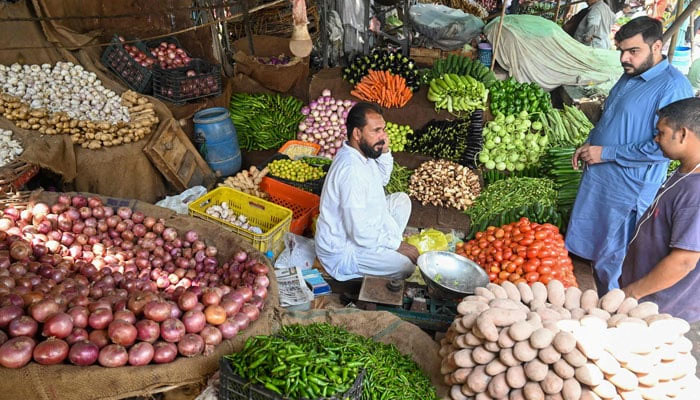Revenue gaps
LAHORE: The miseries faced by Pakistanis are not only because of flawed government policies but also because of the exploitation of consumers by the private sector. The only difference is that the state is getting poorer while the ex-ploiting private sector is getting richer.
A decade back, the vice president of a multinational food processor was asked that since the sales of the brand were multiplying, it warranted downward adjustment because of the economies of scale. Her curt reply was that the company sold quality and charged a premium for it.
Food has become a brand just like other premium brands in different sectors. For years all milk processors have pleaded the government not to slap sales tax on processed milk because end price will get out of reach. I remember interviewing the CEO of a multinational company a month before the presentation of our annual budget in 2013. He said sales tax on processed milk would make the product out-of-reach for consumers.
The government did not levy sales tax on processed milk in that year’s budget but two months after the budget, the milk processors increased the milk rates by a rate higher than its expected impact on the commodity. One wonders how this inflated price did not deter consumers from buying processed milk brands. To date, the sales in fact increase with every increase in prices.
Sales tax is essential to document the actual productivity of milk processors. The government could reduce the rate of sales tax on processed milk to as low as 2.0 percent. While this will increase its price by Rs6 per litre, it will help in the documentation of the sector. Governments usually shy away from slapping the much-needed taxes on many products and services fearing that it would hurt consumers. It never realizes that the petroleum levy of Rs60 per litre hurts con-sumers more. Also, consumers have already seen price hikes on all items -- whether manufactured or from service sectors.
Take the example of sales tax on doctors’ fees. The usual argument is that the sales tax would be borne by the patient. Have they ever realized that doctors periodically increase their consultation fees in one go which is much higher than the conjectural sales tax. In the past two decades, we have seen specialists’ doctors increasing their consultation fees from Rs500 in 2000 systematically to Rs2,500. Now some charge Rs3,500-4,000 while others charge around Rs5,000. Doctors do not give authentic receipts for these consultations except when some patients ask for them to get reimbursement from his/her office.
Most hospitals and doctors that perform surgery want payments in cash. They do not usually provide the patients with their bank accounts details so that the payments could be transferred online. The charges for surgery, operation theatre they declare in their books are much lower than what they charge. It should be made mandatory for hospitals to allow patient to pay their dues electronically in private hospitals. The service should be available to almost all patients who go to private hospitals for treatment. In fact even the room charges of elite private hospitals match those of 5 star hotels.
Private entrepreneurs conceal actual incomes to reduce their tax burden. The government must muster the courage to engage them. Technology could also be used to ensure tax evasion is avoided.
-
 Jennifer Hudson Gets Candid About Kelly Clarkson Calling It Day From Her Show
Jennifer Hudson Gets Candid About Kelly Clarkson Calling It Day From Her Show -
 Shamed Andrew Was With Jeffrey Epstein Night Of Virginia Giuffre Assault
Shamed Andrew Was With Jeffrey Epstein Night Of Virginia Giuffre Assault -
 Shamed Andrew’s Finances Predicted As King ‘will Not Leave Him Alone’
Shamed Andrew’s Finances Predicted As King ‘will Not Leave Him Alone’ -
 Bad Bunny Faces Major Rumour About Personal Life Ahead Of Super Bowl Performance
Bad Bunny Faces Major Rumour About Personal Life Ahead Of Super Bowl Performance -
 Sarah Ferguson’s Links To Jeffrey Epstein Get More Entangled As Expert Talks Of A Testimony Call
Sarah Ferguson’s Links To Jeffrey Epstein Get More Entangled As Expert Talks Of A Testimony Call -
 France Opens Probe Against Former Minister Lang After Epstein File Dump
France Opens Probe Against Former Minister Lang After Epstein File Dump -
 Last Part Of Lil Jon Statement On Son's Death Melts Hearts, Police Suggest Mental Health Issues
Last Part Of Lil Jon Statement On Son's Death Melts Hearts, Police Suggest Mental Health Issues -
 Leonardo DiCaprio's Girlfriend Vittoria Ceretti Given 'greatest Honor Of Her Life'
Leonardo DiCaprio's Girlfriend Vittoria Ceretti Given 'greatest Honor Of Her Life' -
 Beatrice, Eugenie’s Reaction Comes Out After Epstein Files Expose Their Personal Lives Even More
Beatrice, Eugenie’s Reaction Comes Out After Epstein Files Expose Their Personal Lives Even More -
 Will Smith Couldn't Make This Dog Part Of His Family: Here's Why
Will Smith Couldn't Make This Dog Part Of His Family: Here's Why -
 Kylie Jenner In Full Nesting Mode With Timothee Chalamet: ‘Pregnancy No Surprise Now’
Kylie Jenner In Full Nesting Mode With Timothee Chalamet: ‘Pregnancy No Surprise Now’ -
 Laura Dern Reflects On Being Rejected Due To Something She Can't Help
Laura Dern Reflects On Being Rejected Due To Something She Can't Help -
 HBO Axed Naomi Watts's 'Game Of Thrones' Sequel For This Reason
HBO Axed Naomi Watts's 'Game Of Thrones' Sequel For This Reason -
 King Charles' Sandringham Estate Gets 'public Safety Message' After Andrew Move
King Charles' Sandringham Estate Gets 'public Safety Message' After Andrew Move -
 Lewis Capaldi Sends Taylor Swift Sweet Message After 'Opalite' Video Role
Lewis Capaldi Sends Taylor Swift Sweet Message After 'Opalite' Video Role -
 Brooklyn Beckham Plunges Victoria, David Beckham Into Marital Woes: ‘They’re Exhausted As It Seeps Into Marriage
Brooklyn Beckham Plunges Victoria, David Beckham Into Marital Woes: ‘They’re Exhausted As It Seeps Into Marriage




